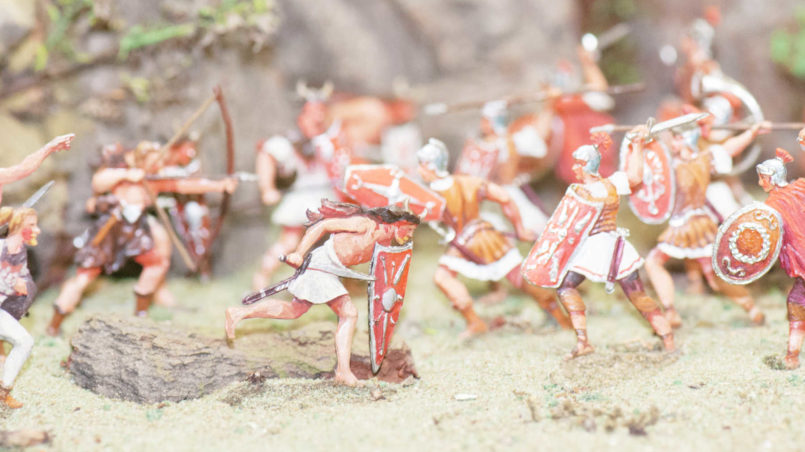The Barbarian Within Us

Time and again, we hear news of inconceivable acts of violence, of cold and unscrupulous murderers, or even of sex offenders with such dreadful paraphilia that their deeds are still talked about even generations later. Countless books and films invite us into the dark realm of their psyche, and yet, thankfully, it remains a mystery to most of us. In fact (unless there is an organic disorder in a person’s brain), all of their terrible crimes materialise in the wake of a long process of dehumanization.
From victim to perpetrator
Sexual abuse in particular, right up to murder, does not happen out of nowhere, but is often committed by people who were victims themselves. Their own childhood experiences have literally destroyed them, until they completely separate from themselves, taking the perspective of the perpetrator. How can we handle these corrupted souls? Can we, as a society, relinquish all responsibility for leaving them to their own devices as children, instead of protecting them?
On the other hand, can the right of these people to re-socialize, heal, develop and participate in social life ever be more important than the future security of their potential victims? Can there be real healing for them at all, and if so, what amount of resources should be made available? And, more practically, how can one reliably recognize whether therapeutic measures have been successful, or whether the patient has manipulated his assessors cleverly?
The lack of empathy
It is not only former victims of crimes who commit terrible deeds to their fellow human beings – psychopaths, too, will steal, deceive, rape or kill people and they do it out of sheer curiosity or hunger for power.
The barbarian in us
At this point of the thought chain, the unhappy idea of revenge can be felt in all its clarity. We are appalled at the thought of leniancy for a sadistic predator. But when it comes to the legal system, we are well advised to put aside this lynchmob thinking.
The fundamental approach must always be to help people as much as humanly possible, without ever jeopardizing the innocent. Not for their sake – and here lies a great misunderstanding between hardliners and humanists: hardly anyone is so naive to see a merely misunderstood, “soft” side even in the most brutal criminal.
If we want to remain civilized and humane, we must act bearing in mind that these people are no longer a danger to others, once institutionalized, and treat them as well as possible without endangering ourselves.
Death penalty
Violent fantasies about what “one” should do with certain criminals are something many of us easily get over our lips. As already mentioned, it is fundamentally important to distinguish between what we personally wish upon brutal, cruel and sadistic people, and what is good and salutary for society.
There may be people who deserve a thousand deaths, or not (for who are we to decide a philosophically so unclear question for others?) – but – and this is really the point: we must never have the right to mete out this punishment, otherwise we open the door to a terrible spirit. Do we really want a legal system, which we know to be riddled with mistakes, corruption and incompetence, as governments traditionally are, to have the right to disembody us?
Temptation is also a factor that must not be overlooked: what of the possibility of falsifying evidence in order to remove unwelcome opponents or accessories, all the more effortlessly, the better someone is connected in executive and judicial circles? Moreover, the example of the US shows that practically only poor people are executed, while wealthy and connected citizens are almost always successful in finding a way out.
The families of the victims, so it is argued, need closure, the relief that the crime is atoned. On the one hand, we have no right to speak for them and to instrumentalize their suffering. On the other hand, the belief that the participation in an execution brings relief to the survivors, often turns out to be a brutal error resulting only in more pain.
Even the truly cynical argument that it costs the public too much money to provide for criminals for as long as they live does not correspond with the facts because, in comparison, an execution is surprisingly expensive. This, however, is only marginal, because even if providing for a prisoner were to cost more than killing them, this is a price a society has to consider worthwhile for not falling into barbarism – and for oneself to be safe from ever having one’s life taken by the judiciary simply for having made the wrong enemy or having been in the wrong place at the wrong time.
Either way, we have to learn to listen to the best in ourselves – and the voice that cries for revenge is just not part of it.
Credits
| Image | Title | Author | License |
|---|---|---|---|
 |
Romans_vs._Barbarians | Thomas Quine | CC BY 2.0 |
